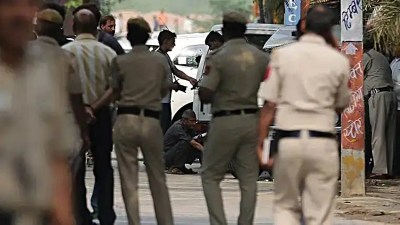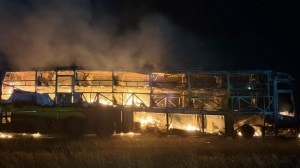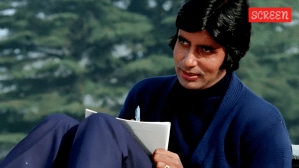Bush’s Saudi friend linked to UK corruption scandal
Saudi Prince Bandar bin Sultan, the powerful former US ambassador who has been one of the Bush administration’s strongest allies in West Asia

Saudi Prince Bandar bin Sultan, the powerful former US ambassador who has been one of the Bush administration’s strongest allies in West Asia, was publicly linked to a widening British corruption scandal on Thursday with reports that a British aerospace company secretly paid up to $2 billion into bank accounts at the Saudi embassy in Washington.
The new allegations point directly at Bandar, son of the Saudi crown prince and a man who has been a key ally for both the current President Bush and his father as well as a frequent contact of Vice-President Dick Cheney’s. For years, the prince has been considered the most important go-between in the close and often secretive relationship between the United States and the Saudi royal family.
According to reports by the BBC and The Guardian newspaper, documents show that BAE Systems made cash transfers to Bandar every three months for 10 years or more, drawn from a confidential account at the Bank of England to which British government departments had access.
The payments are alleged to have grown out of a 20-yearlong, $86 billion oil-for-arms deal under which Britain supplied Saudi Arabia with 120 Tornado aircraft, Hawk warplanes and other military equipment. The deal, known as al-Yamamah, was Britain’s largest export contract.
A former BAE official has said the company made legal payments to “agents” beginning in the 1980s. But news reports said that money was funneled to Bandar, with some of the cash going into an account used to fund the prince’s private Airbus. The money reportedly was described as being fees for marketing services.
“Hundreds of thousands and millions of dollars were involved,” US bank investigator David Caruso told the BBC. “There wasn’t a distinction between the accounts of the embassy, or official government accounts as we would call them, and the accounts of the royal family,” he said.
The reports suggested for the first time that Britain’s Ministry of Defence had authorised the secret payments, and they also left open
the possibility that payments occurred after 2001, when Britain made it illegal to bribe foreign officials.
The al-Yamamah contract was already at the centre of a government investigation. But in December, that three-year investigation was suddenly halted in the interest of Britain’s “national and international security” with the approval of Prime Minister Tony Blair. The new allegations reignited the controversy over that decision.
The Serious Fraud Office’s decision to close down its investigation led to charges that Britain was attempting to shore up its negotiations to sell a $20 billion new fleet of Eurofighter jets to the desert kingdom.
But British officials said their real fear was losing Saudi Arabia’s cooperation in the war on terrorism. Attorney General Lord Goldsmith told Parliament that the heads of Britain’s security and intelligence agencies, as well as the nation’s ambassador in Riyadh, had warned that the investigation could seriously damage relations.
Blair, whose final weeks as prime minister now may be shadowed with talk of slush funds and cover-ups, again defended the decision to call off the investigation.
“This investigation if it had gone ahead would have involved the most serious allegations and investigations being made into the Saudi royal family,” Blair told reporters Thursday in Germany, where he was attending the G8 summit.



- 01
- 02
- 03
- 04
- 05




























